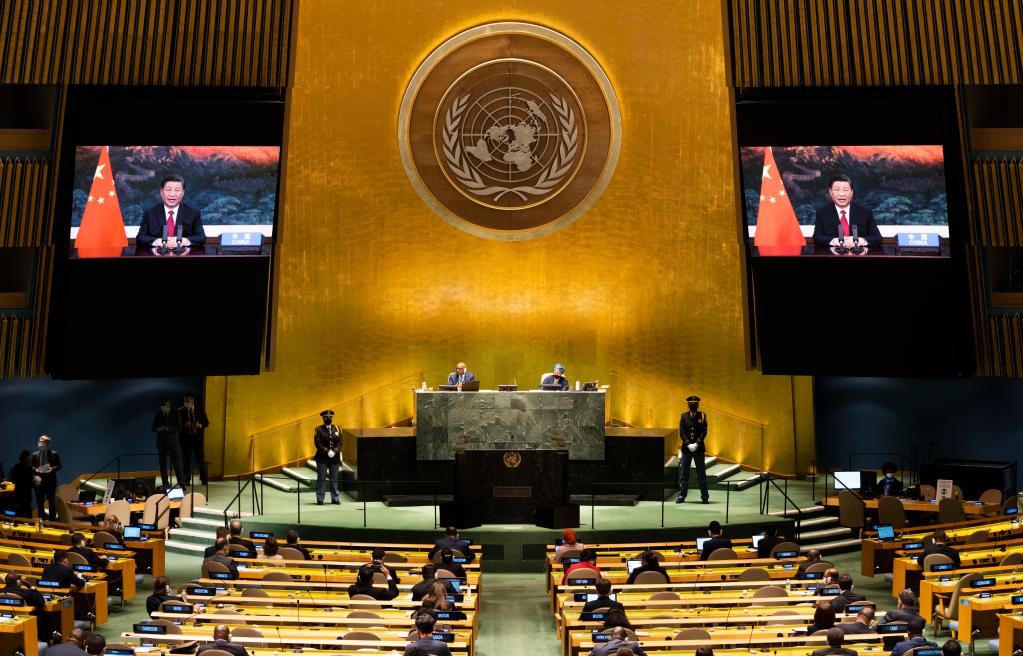China's overseas coal power plant promise a paradigm shift
Xinhua | Updated: 2021-09-24 08:11

In a major policy announcement that has quickly won praise across the world, Chinese President Xi Jinping said China will not build new coal-fired power projects abroad at the general debate of the 76th session of the United Nations General Assembly.
UN Secretary-General António Guterres said he welcomes the announcement made by President Xi. The United States climate envoy John Kerry called it "an extremely welcome decision." Alok Sharma, president-designate of the 26th UN Climate Change Conference of the Parties (COP26), also hailed Xi's announcement.
This is the latest step China has taken to tackle global climate change which requires ambition and action. As the world's largest clean energy equipment manufacturer, China has been actively working toward green and low-carbon global energy transition by engaging in extensive cooperation in renewable energy.
China's efforts can be seen in cooperation projects such as the Kaleta hydropower project in Guinea, the Kaposvar PV power station project in Hungary, the Mozura wind park project in Montenegro, the Karot hydropower project and the first phase of the solar PV power project in the Quaid-e-Azam Solar Park in Pakistan.
China is also the largest renewable energy market. The wide application of renewable energy technologies in the Chinese market is helping reduce the cost of the green resource across the globe and accelerate the transition process to the new form of energy.
Rarely mentioned and insufficiently acknowledged in the West, China's enormous investment in renewable energy such as solar power has significantly improved technology expertise and increased global supply. If it were not for China, especially the Chinese government's ambitious and generous investment, the world would not have gained increasingly wider and inexpensive access to renewable energy.
China has also been supporting capacity building to address climate change in developing countries. The nation is committed to deeper South-South climate cooperation. From 2016 to the end of 2020, China set up 10 low-carbon pilot industrial parks, launched 100 mitigation and adaptation programs, and provided 1,000 training opportunities on climate change cooperation in developing countries to help them develop clean and low-carbon energy and jointly address global climate change. The response to climate change has set off a new round of industrial revolution, and grabbing the opportunity to transform to green industry is to catch the competitiveness of the future.
Under the principle of common but differentiated responsibilities and respective capabilities, China is making every effort to meet the goals of peaking carbon dioxide emissions before 2030 and achieving carbon neutrality before 2060, a mission that requires extremely hard work and a promise that must be kept.
























